Darwin’s Blind Spot
by Gerard M. Verschuuren
Filed under Evolution
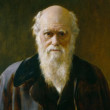
It is a well-known fact that Charles Darwin, the author of that famous, and at the same time infamous, book entitled On the Origin of Species, used to be all over the religious map during his lifetime (1809-1882). Darwin’s personal beliefs remain ambiguous. I think what expresses his ambiguity best is what he wrote in a letter to J.D. Hooker (1861): “My theology is a simple muddle; I cannot look at the universe as the result of blind chance, yet I can see no evidence of beneficent... Read More
Morality Is Not a Biological Issue
by Gerard M. Verschuuren
Filed under Morality

Modern biology makes us believe that we descended from the animal world and that we are nothing more than glorified animals. However, even if we did descend from the animal world, that doesn’t mean all our characteristics were transferred to us through genes and umbilical cords. For example, our anatomy and physiology did come from there, but what about our rationality and morality? In this article, I will focus on morality alone and argue that what sets us apart from the animal world... Read More
Can Darwinism Survive without Teleology?
by Gerard M. Verschuuren
Filed under Evolution
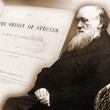
Ever since Darwin, the concept of teleology has been suspect among biologists. What is so controversial about teleology? Most likely, its history! From the earliest Greek philosophers on, it was widely believed that the world must have a purpose because, as Aristotle would put it, “nature does nothing in vain,” and neither does God, as a Jew or Christian would say. In this often misunderstood view, any change in this world is due to final causes that move things to an ultimate... Read More
Do Faith and Science Contradict?: Interview with Catholic Physicist Dominique Lambert
by Brandon Vogt
Filed under Interviews
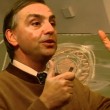
Prominent atheists such as Richard Dawkins have consistently chastised religion for thwarting scientific research. But Professor Dominique Lambert, a respected expert in theoretical physics and the philosophy of science at the University of Namur, Belgium, believes not only does the Catholic faith, when correctly applied, not hinder science, but gives it vital intelligibility, meaning, and purpose. In this interview, Professor Lambert speaks about the necessity of a harmonious relationship... Read More
I’m a Direct Descendant of Darwin…and a Catholic
by Laura Keynes
Filed under Belief, Evolution
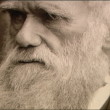
"Are you related to the economist?” people sometimes ask when they see my surname. I explain that, yes, John Maynard Keynes is my great-great-uncle—his brother Geoffrey married Margaret Darwin, my great-grandmother. “So you’re related to Darwin too?” Yes, he’s my great-great-great grandfather. Eyes might fall on the cross around my neck: “And you’re a Christian?” Yes, a Catholic. “How does a Darwin end up Catholic?” The question genuinely seems to puzzle people.... Read More
What Is the Difference Between Creation, Evolution, and Intelligent Design?
by Jimmy Akin
Filed under Cosmology, Evolution
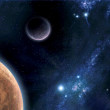
What's the difference between creation, evolution, and intelligent design? Creationism, Evolutionism, and Intelligent Design are three of the major positions on the question of how we got here. What’s the difference between these positions? That seemingly straightforward question proves surprisingly controversial. Let’s take a look at it . . . The Basic Question The basic question at issue in the contemporary origins debate is whether or not the world was created. It could... Read More
Evolution Doesn’t Select for Ethics
by Leah Libresco
Filed under Evolution
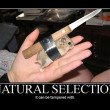
The second most incorrect thing people say about evolution is that it is the survival of the fittest. (The most incorrect award has to go to the claim "it doesn’t exist"). The problem with this framing is that it sets up a picture of evolution-as-craftsman, carefully scrutinizing genetic variations and selecting and nurturing the most promising variant. But evolution isn’t selecting for, it’s selecting against. Instead of survival of the fittest, it’s the persistence of the... Read More






